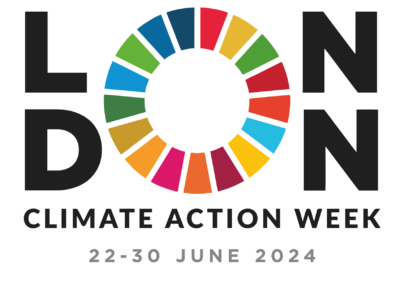Sarah Redicker is a postdoctoral Research Associate at the University of Exeter. In this blog, she presents the viewpoint that rather than viewing migration as a last resort, we should actively align our efforts to maintain habitable places and provide people with choices.
In a landmark move, Australia recently made headlines by extending a “human mobility pathway to Australia” for residents of Tuvalu, an island in the Pacific Ocean facing climate change threats. While celebrated globally as a positive step, the plan has also drawn careful criticism for its lack of consultation with Tuvaluans, highlighting the complexities of climate-induced migration. The Tuvaluan situation mirrors the dilemmas faced by numerous communities in climate-vulnerable regions – some wish to leave, while others choose to stay.
The Shifting Landscape of Climate-Induced Migration
Climate change is undeniably reshaping the world’s economic and human geography, with its impact on migration becoming increasingly evident. While it is not currently the primary driver of migration, it holds the potential to assume that role. In many ways, climatic change already serves as an indirect driver, intensifying incentives to move by impacting environmental conditions critical to rural livelihoods, such as farming and herding. It is important to note that most of the global migration remains within national borders, primarily driven by economic incentives and labour demand. International migration stocks represent only about three percent of the world population and have remained relatively stable over the past 30-40 years. However, as climate change continues to exacerbate inequalities and vulnerabilities, it is positioned to become a substantial influence that shapes, amplifies in some instances, and constrains in others, both national and international migration in the years ahead.
Reframing Migration Narratives for a Resilient Future
Migration is not a novel occurrence, it has been a constant throughout human history and will persist. It is a nuanced phenomenon shaped by a myriad of factors. Economic opportunities, improved living conditions, escaping conflict, pursuing education, or seeking a change in lifestyle – all contribute to people’s decisions to migrate. It’s essential to appreciate the complexity and multifaceted nature of these motivations, shaped by individual, social, economic, and political factors. Keeping these opportunities open is even more important under the threat of climate change to ensure a just and equitable world.
At the University of Exeter, our research team, involved in projects like the Habitable and SUCCESS projects, advocates for a migration narrative centred on opportunities of migration as an adaptation pathway. Findings from studies across South Asia and sub-Saharan Africa reveal that by recognising migration as an avenue for opportunity, we can reshape public perception and contribute to building a more inclusive future. As such, it is crucial to view migration as a common and effective risk-spreading adaptation rather than a failure to adapt.
Toward a Just and Sustainable Future
The migration pathway created by the Australian government provides Tuvaluan people with the means to diversify their livelihood options. Beyond mere relocation, it opens avenues for increased remittances and skill development through education and training opportunities. Recognising migration as a multifaceted strategy enhances resilience and empowers communities to proactively address the challenges of climate change.
To maximise the potential of migration as an adaptation strategy, policies should strategically target key areas. This includes implementing fair processes that support community relocations when needed, placing a strong emphasis on international cooperation concerning migration flows, adaptation, and climate change mitigation. But this also includes policies that strengthen communities that wish to remain for example through investments in climate resilient infrastructure, education, and rural development. In addition, in the pursuit of a just and equitable future, migrant destination areas such as cities must undergo a transformation into secure and resilient destinations for migrants.
As we navigate the evolving relationship between climate change and migration, it is imperative to embrace a narrative of opportunities and sustainable adaptation. Rather than viewing migration as a last resort, we should actively align our efforts to maintain habitable places and provide people with choices. By fostering international collaboration, reframing public discourse, and understanding the diverse motivations behind migration, we can collectively work towards building a resilient and just global future.
Sarah Redicker was awarded a Networking Scholarship to attend COP28, enabled by a partnership between the UK Universities Climate Network, the UK Embassy Science and Innovation Network in UAE and the Research England funded Centre for Postdoctoral Research in Infrastructure, Cities and Energy (C-DICE).


